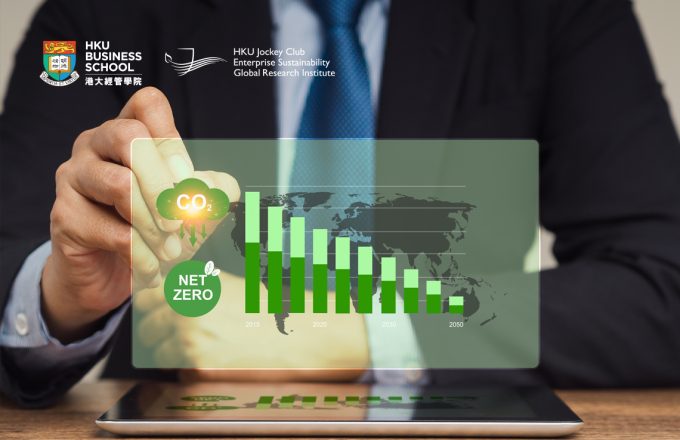
Corporate social responsibility: Doing good is good for business
Employee turnover is a constant scourge of businesses. Recruiting, on boarding and training employees is a costly and time-consuming affair. While a certain amount of turnover is always to be expected in any company, businesses are constantly seeking ways to encourage their employees to stay with the firm. Some of these measures are employee-focused, such as offering salary raises or bonuses, holding team-building activities, offering training or attractive career–building opportunities, while others include enhancing the company’s brand and reputation through corporate social responsibility.
One under-explored area is the question of whether employees’ positive perceptions of a company’s CSR activities may play a part in encouraging existing staff to stay. that gap has now been filled by new research published in Personnel Psychology 2019 and conducted by Thomas W. H. Ng, Professor of Management and strategy of the University of Hong Kong; Kai Chi Yam, Assistant Professor of Management and Organisation of National University of Singapore, and Herman Aguinis, Professor of Management of George Washington University in the United states.
They found positive results to their study of the idea that “perceived CSR lowers employee turnover because it enhances employees’ pride, which then translates to strengthened organisational embeddedness (OE) that lowers the tendency to leave.”
CSR can be defined as corporate policies and actions that go beyond the organisation’s interest and aim to affect stakeholders positively. It comes in many shapes and forms and may include donating a portion of a company’s profits to charity; raising funds for good causes; conducting environmentally positive activities, such as cleaning beaches or helping repair earthquake damage; volunteering in local communities, or otherwise making a positive contribution to the world.
The positive impacts of CSR for companies include improving company branding and recognition; enhancing customer loyalty; increasing marketing effectiveness; building the company’s appeal, particularly among millennials, and helping to rebuild a positive public image following a scandal.
Many of these benefits are outward-focused and look at the objective CSR activities from the company’s perspective. One aspect of CSR that has been neglected, however, is the impact on employees of the firm’s CSR activities. What this study adds to the research is an investigation of the benefits to the company that result from employees’ positive reactions to their company’s CSR activities.
The premise of the study rests on the theory that a linked sequence of outcomes exists between CSR perception, emotion, attitude and behaviour. that is, as the authors put it, “…perceived CSR leads employees to experience emotions. These emotional responses then trigger job attitudes. Finally, job attitudes result in job behaviours.”
Once employees are aware of a company’s CSR activities – and this is not a given, as many employees may be unaware or under aware of such activities – emotions are triggered. The most important emotion explored here is pride. When an employee feels that their organisation is doing something positive, they feel pride in their organisation, which may then trigger a change in employees’ attitude.
To evaluate the impact of CSR on employees, the study focused on examining the employees’ perceptions of CSR to understand their reactions by incorporating inputs from organisational behaviour, human resources management and applied psychology. In particular, they looked at employees’ perception of their firms’ CSR activities rather than looking at the activities themselves or the company’s view of CSR. “Crucially it is the appraisers’ subjective perceptions of CSR, such as its nature, motives and beneficiaries that are mainly responsible for the appraisers’ reactions,” say the authors.
Once CSR has been perceived, several emotions may be triggered, with pride being paramount among them. “[W]e focus on organisational pride in particular because of individuals’ tendency to be cognisant of cues that make them feel good about themselves or about the groups to which they belong,” explain the authors. Because CSR activities are deemed as positive actions, they transmit feel-good cues to employees who perceive them. This organisational pride is triggered by information or cues about the company that lets them see their employer in a positive light. CSR activities fit into this category by enabling employees to perceive their company as capable and resourceful, and perhaps better than other companies. The fact that their company has undertaken these kinds of activities can also make employees feel positive about the management as being fair and caring.
Once a feeling of pride is experienced, employees feel more attached to the source of that pride. For example, they may feel closer to the company’s goals, mission and values, and its management team. this ‘organisational embeddedness’ is defined as the extent to which employees are enmeshed with their employers, and is an overall attitude born of positive feelings towards the company. It has a direct impact on the likelihood of employees’ subsequent decisions about whether to stay with a company. “When employees are proud of their part in their organisations and assimilate the organisation entity into their self-evaluations, they are more willing to stay to help the organisation survive and prosper, as the well-being of the organisation directly affects the well-being of the employee,” explain the authors.
The authors ran four studies focusing on male and female respondents in the US and Hong Kong and working in both managerial and non-managerial roles. In brief, the studies required participants to imagine they were working for an organisation with a specified level of CSR activities and then complete surveys to measure their organisational pride and organisational embeddedness in these companies. The results showed that employees felt more pride when they had higher perceptions of their company’s CSR activities. The more pride they felt, the more organisational embeddedness they reported.
The authors showed the importance of organisational embeddedness both as a desired outcome and as a likely deterrent to leaving the company. “Through tethering employees to their organisations, OE frames employees’ perception for their organisations in functional ways that provide employees with purpose and direction to their jobs […] Thus, OE is informative in explaining why perceived CSR is likely to result in positive job behaviour.”
Overall, the studies showed that perceived CSR is likely to result in positive job behaviour, meaning lower turnover. “Our findings contribute to the CSR literature by showing that perceived CSR can strengthen employee embeddedness, which in turn lowers turnover behaviour,” say the authors. “That is, perceived CSR is a noteworthy antecedent of employee turnover.”
The study and its outcomes offer a valuable resource to companies seeking to reap the maximum benefits from their well thought-out CSR activities. By understanding the impact of their CSR activities on employees, the firm can ensure, firstly, that employees are aware that these activities take place. Ensuring employee perception of CSR activities will strengthen employees’ bond with the company and can be another way to help reduce turnover levels, as well as improving the performance and selection of the company’s CSR activities themselves, all of which can lead to better results for the company.
By its focus on doing good for the world, CSR brings benefits in and of itself. Armed with the knowledge of the additional benefits that CSR activities can bring, companies now have more incentives to launch or expand their CSR activities.
Contributing reporter: Liana CAFOLLA
Source: Ng, T. W., Yam, K. C., & Aguinis, H. (2019). Employee perceptions of corporate social responsibility: Effects on pride, embeddedness, and turnover. Personnel Psychology, 72(1), 107-137. (https://doi.org/10.1111/peps.12294)







